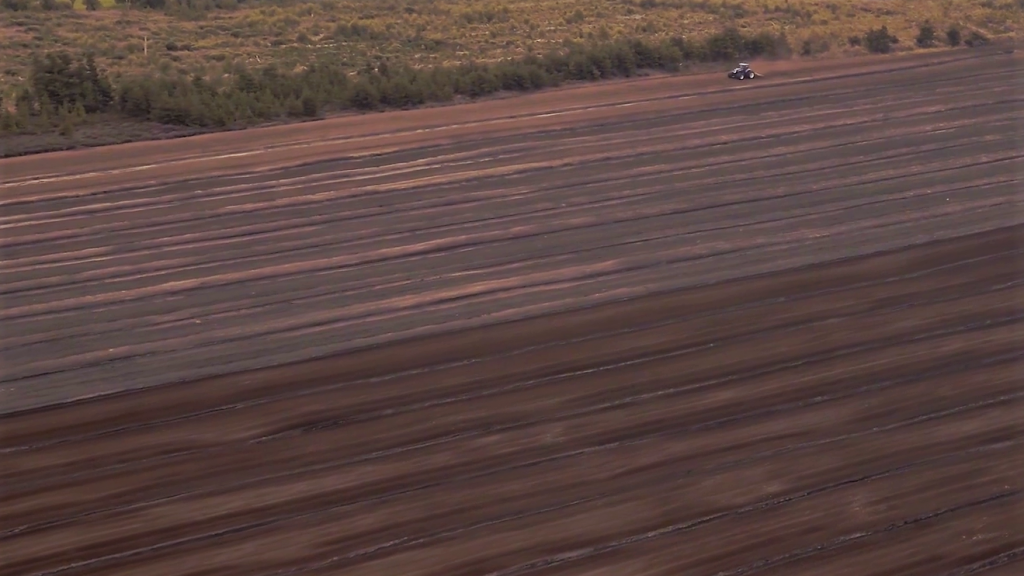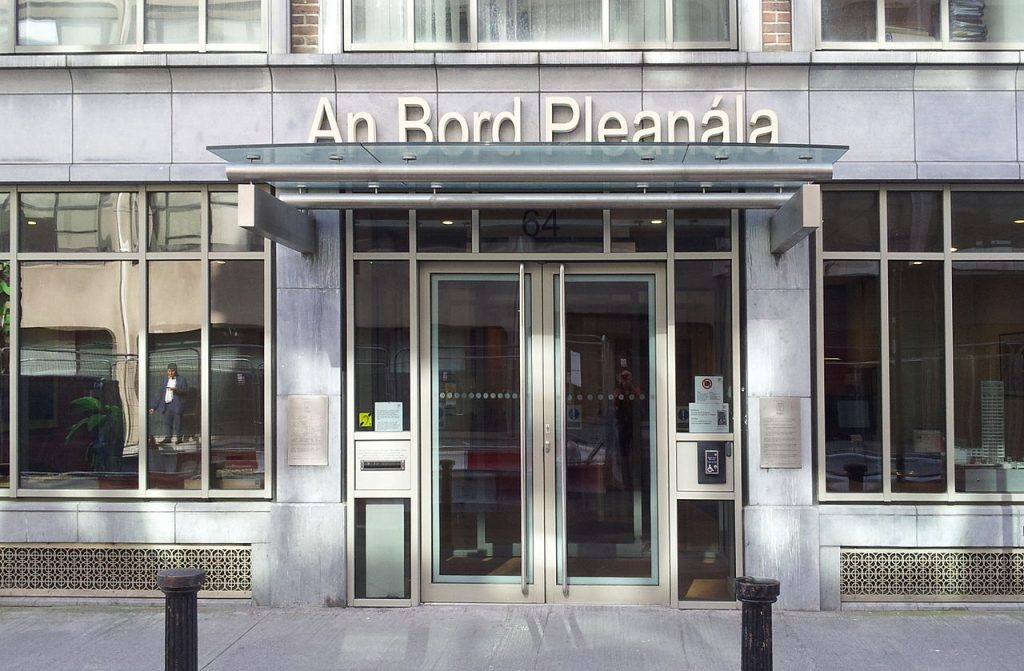Supreme Court hears large-scale peat extraction case

December 10th, 2019
The Supreme Court today heard proceedings over a near-decade old dispute to determine the owners of land that form part of a large scale peat extraction cluster operating without planning permission in Co Westmeath.
The case brought by Friends of the Irish Environment (FIE) against An Bord Pleanála relates to a request from the environmental group for a determination that certain peat extraction works are not exempted developments and therefore require planning permission.
Most of our peatlands – important carbon risks when rewet and restored – are now degraded due to drainage for peat extraction. The vast majority of industrial extraction projects operate without planning permission or environmental assessments as required under EU law.
In 2013, FIE sought a determination from Westmeath County Council as to the planning status of three large operations run separately by Westland, Bulrush Horticulture, and unnamed third parties in the case that is subject to the current Supreme Court hearing.
The Council, in turn, referred the matter to the planning authority, with the Bord finding that the operations of Westland and Bulrush were not exempt development and therefore require planning permission.
It dismissed FIE’s request in relation to the third operation on 187 hectares as owners of the different parcels of land under extraction could not be fully identified.
FIE provided maps outlining the areas but did not have information about the exact owners and/or occupiers of the sites in question.
Thirteen land registry folios provided to the Bord by the Council outlined numerous parcels of land subdivided into smaller lots that may have different owners or occupiers.
As the owners could not be determined with clarity, the Bord dismissed FIE’s request as it could not grant “fair procedures rights” to the owners or occupiers to make observations or submissions.
The Board’s dismissal was challenged by FIE in the High Court in May 2013. The case was not determined until last March when Mr Justice Charles Meenan held the Board’s decision.
The Supreme Court subsequently accepted a leapfrog appeal from FIE to bypass the Court of Appeals owing to the general public importance, of the case, leading to today’s hearing.

‘Ample means at its disposal’
Speaking this morning, FIE Counsel James Devlin SC said that the case raises very serious problems for Ireland in meeting its environmental protection obligations under EU law.
If it were to be determined in this case that the peat extraction requires planning permission, then an environmental impact assessment would have to be carried out as part of the planning process prior to any grant of permission
Thus, Mr Devlin said, the case in hand is not a “common garden problem” and hits on the substantial issue of Ireland’s obligation to ensure that projects likely to have significant environmental impacts, as is the case with all large scale peat extraction, are assessed for such impacts.
Mr Devlin said that the Bord had “ample means at its disposal” to address any concerns that it may have had about the exact owners of the lands in question. “It has various powers at its disposal to resolve the matter and it couldn’t throw in the towel until it used those powers,” Mr Devlin said.
He added that the Bord is, in fact, obliged under EU environmental law to “take all measures at its disposal” to ensure that projects likely to have significant impacts on the environment are assessed.
He said that the problems with owner identity could have been overcome by serving notice to the relevant persons under planning law, with the notices placed at visible locations on or near the lands in question.

‘Reasonable approach’ by the Bord
Counsel for An Bord Pleanála, Nuala Butler SC, argued that the affixing of notices was not a solution as the various folio maps do not identify the owners or occupiers of each specific small lot.
Ms Butler said that the Bord was wholly justified in its decision to dismiss FIE’s request as she said that FIE did not provide enough information to make an accurate determination.
“The approach of the Bord was reasonable and safe and fair”, she said, including going back to Westmeath County Council for further information and corresponding with nine persons, including representatives and solicitors for several peat companies, referred in the Land Registry folios.
However, with ownership of only half of the land in question adequately identified due to the difficulties presented by the splitting of land in certain folios, she said that it would have been “unsafe and unfair” for the Bord to made a determination.
A key problem, Ms Butler argued, is the “framing of the complaint” by FIE to seek determination for a large package of lands across the county, adding that FIE did not provide additional information requested by the Bord.
She said that she found it “astonishing” that the environmental group would “toss very large areas of land at the foot of [the Bord] and say ‘now, there you have it, make a determination’”.
Mr Devlin countered that the Bord should have gone further in its discussions with Westmeath County Council than simply asking for the folio information. In addition, he said, FIE did not have the specific information requested by the Bord at its disposal at the time of the request.
This doesn’t allow the Bord to go and “throw their hands up in the air”, Mr Devlin argued, reiterating that it should have done more to ensure that it compiled with Ireland’s environmental obligations under EU law.
The Supreme Court has reserved judgement in the appeal.
[x_author title=”About the Author”]







